The document discusses the challenges and methodologies surrounding the management of changing data and knowledge within analytics systems, particularly focusing on time and provenance within decision support systems. It explores concepts such as observability, change detection, and impact assessment, emphasizing the need for continuous re-evaluation of data to maintain accuracy in knowledge. The 'recomp' framework is introduced as a decision support system designed to facilitate these processes through effective tracking and analysis of data dependencies and changes.
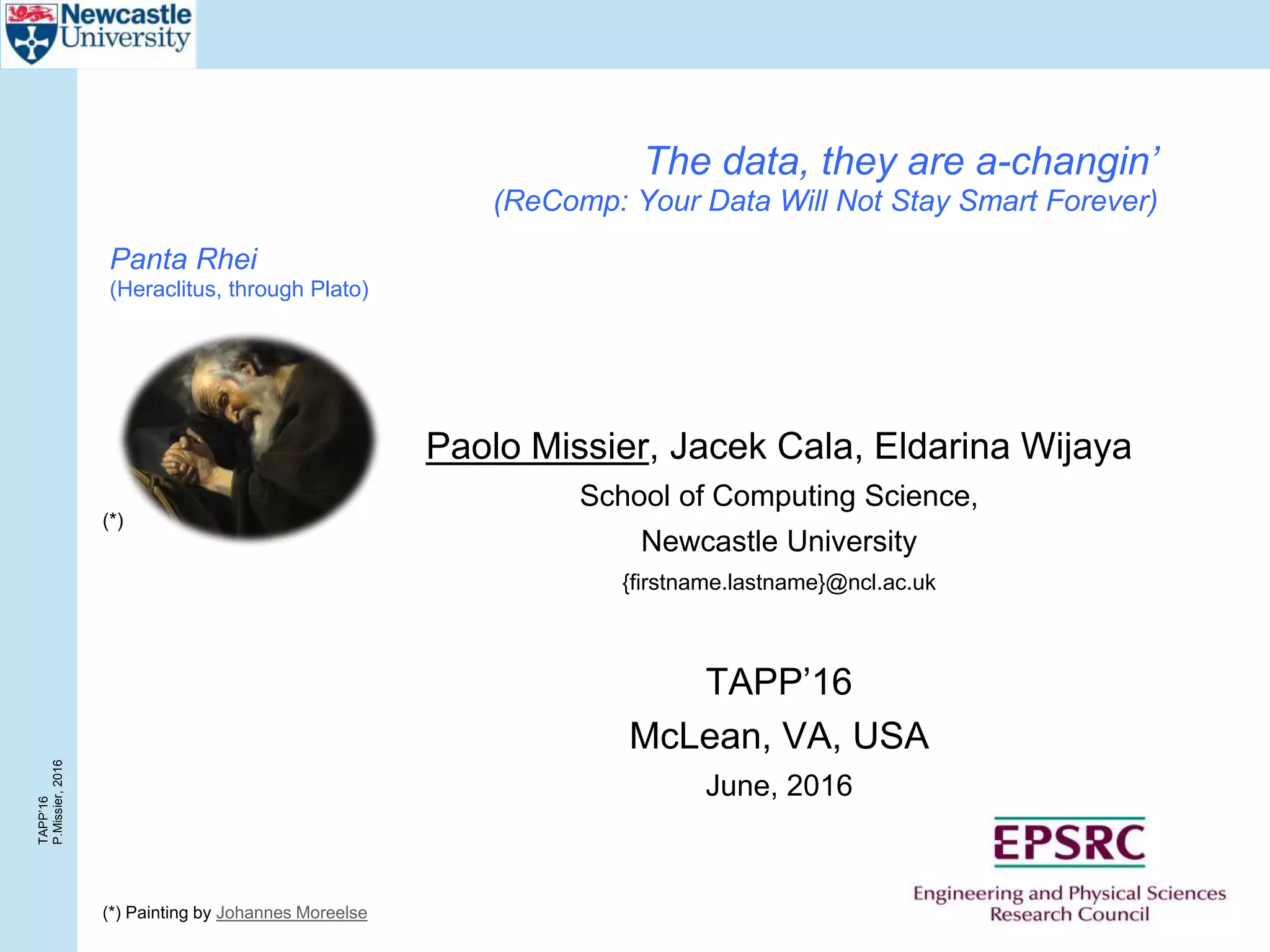
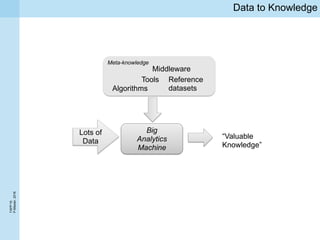
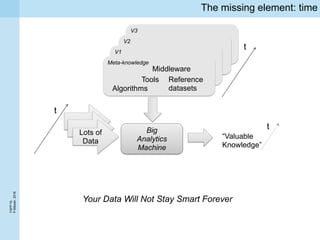
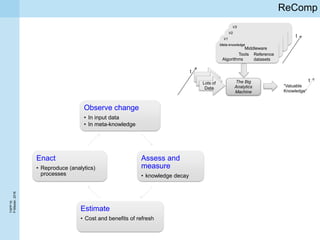
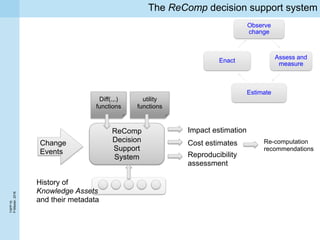
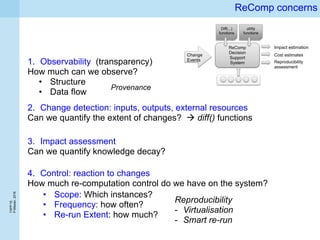
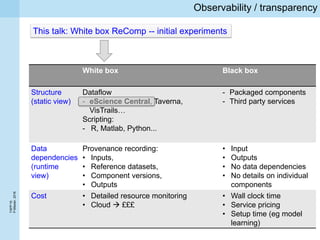
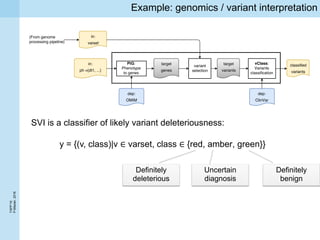
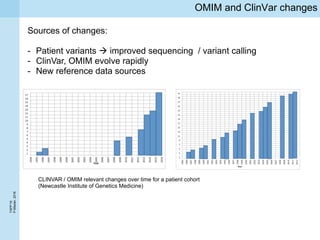
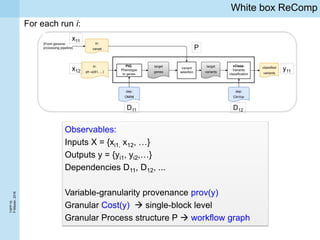
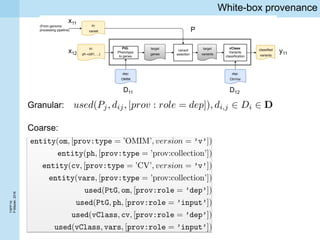
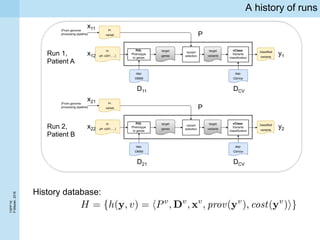
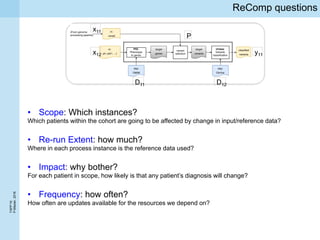
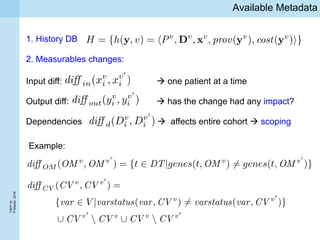
![TAPP’16
P.Missier,2016
Querying provenance to determine Scope and Re-run Extent
Given observed changes in resources
History instance:
1. Scoping: For each
Case 1: Granular provenance
is in the scope S ⊆ H if
Pj is added to Pscope(y)
2. Re-run Extent:
1. Find a partial order on Pscope(y)
2. Re-run starts from each of the earliest Pj such that their output is
available as persistent intermediate result
see for instance Smart Run Manager [1]
[1] Ludäscher, B., Altintas, I., Berkley, C., Higgins, D., Jaeger-Frank, E., Jones, M., Lee, E., Tao, J., Zhao, Y.:
Scientific Workflow Management and the Kepler System. Concurrency and Computation: Practice & Experience,
Special Issue on Scientific Workflows, 2005, Wiley.](https://image.slidesharecdn.com/tapp16-talk-160610074935/85/The-data-they-are-a-changin-15-320.jpg)
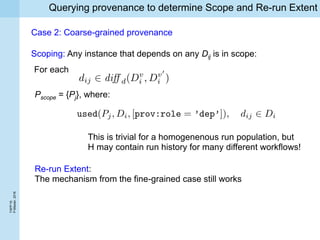
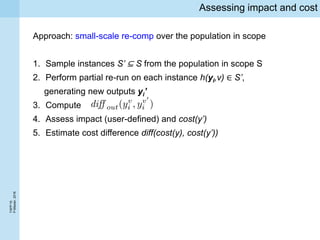
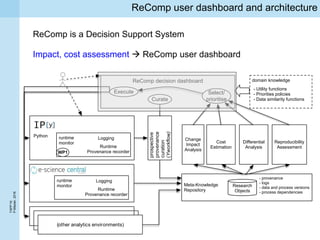
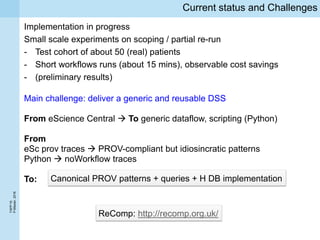
![TAPP’16
P.Missier,2016
References
[1] Ludäscher, B., Altintas, I., Berkley, C., Higgins, D., Jaeger-Frank, E., Jones, M.,
Lee, E., Tao, J., Zhao, Y.: Scientific Workflow Management and the Kepler System.
Concurrency and Computation: Practice & Experience, Special Issue on Scientific
Workflows, 2005, Wiley.
[2] Ikeda, Robert, Semih Salihoglu, and Jennifer Widom. Provenance-Based Refresh
in Data-Oriented Workflows. In Procs CIKM, 2011
[3] R. Ikeda and J. Widom. Panda: A system for provenance and data. Procs
TaPP10, 33:1–8, 2010.
[4] D. Koop, E. Santos, B. Bauer, M. Troyer, J. Freire, and C. T. Silva. Bridging
workflow and data provenance using strong links. In Scientific and statistical
database management, pages 397–415. Springer, 2010. ISBN 3642138179.
[5] P. Missier, E. Wijaya, R. Kirby, and M. Keogh. SVI: a simple single-nucleotide
Human Variant Interpretation tool for Clinical Use. In Procs. 11th International
conference on Data Integration in the Life Sciences, Los Angeles, CA, 2015.
Springer.](https://image.slidesharecdn.com/tapp16-talk-160610074935/85/The-data-they-are-a-changin-20-320.jpg)